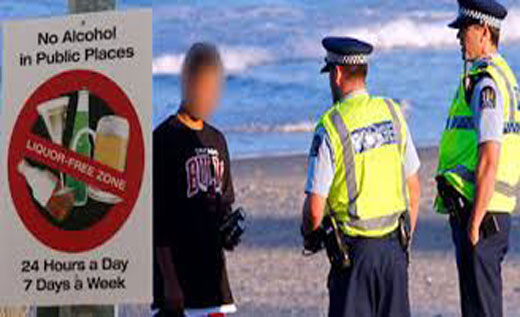The number of people being detained by Western Bay of Plenty Police who have consumed alcohol prior to their arrest is on the rise, says alcohol harm reduction co-ordinator Sergeant Nigel McGlone.
Nigel says the WBOP trend reflects the national trend in results from a recent survey in other parts of the country.
More and more people detained have consumed alcohol prior to being picked up by police.
The latest New Zealand Arrestee Drug Use Monitoring Programme Reports [NZ-ADUM] found that 41 per cent of people detained by police had been drinking prior to their arrest.
The NZ-ADUM study is an annual Massey University study that has been funded by police since 2010.
Assistant police commissioner Malcolm Burgess says the average number of drinks detainees claimed they had consumed increased from 12 in 2010 to 17 in 2013.
'We believe the Sale and Supply of Alcohol Act, which came into effect in December, will help us reduce alcohol fuelled crime, but we need the community to play their part by adjusting their drinking habits and their expectations around the availability of alcohol.”
Whilst figures are not available for the WBOP area, police indicate that alcohol continues to be a significant factor in the history and behaviour of people being arrested or detained.
Sergeant Nigel McGlone says alcohol is a significant driver of crime in the community and people need to take heed of the survey results.
'It's never been about prohibition or denying people the right to consume alcohol.
'It's about what we drink and how we drink it and making sure that we take individual and collective responsibility around the consumption of alcohol.”
Nigel says a lot of work has been done locally over the last few years to ensure the sale and supply of alcohol from licensed premises and at special events has been managed in a responsible way.
'By and large, I'm confident most premises and events get the recipe right and where issues are identified, Police and council licensing inspectors take appropriate action.”
The consumption of alcohol in private or non-licensed environments also sees a significant amount of harm Nigel says it caused by irresponsible alcohol consumption and leads to those involved becoming either victims or offenders.
'Invariably, people who don't drink responsibly make poor choices that can have tragic and far-reaching consequences. The person who has drunk too much and becomes a vulnerable target for offenders, the person who gets punchy after a few too many drinks – we all know the scenarios.
'As individuals and a community, we need to be sharp enough to recognise the signs of irresponsible drinking before it goes too far and make good decisions and interventions when we need to.”



0 comments
Leave a Comment
You must be logged in to make a comment.